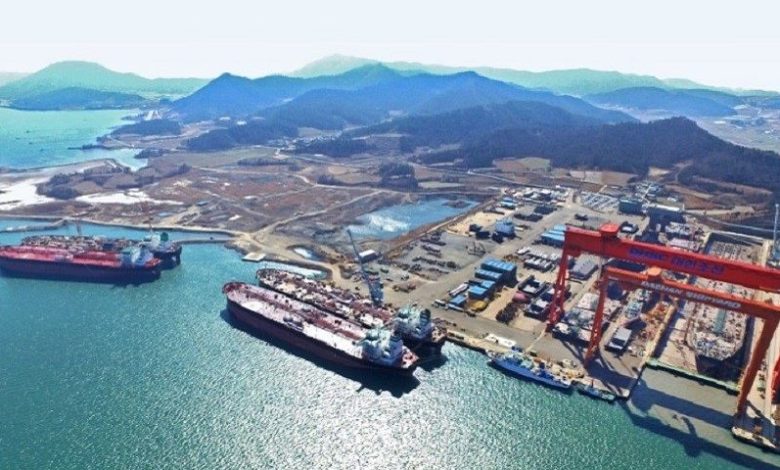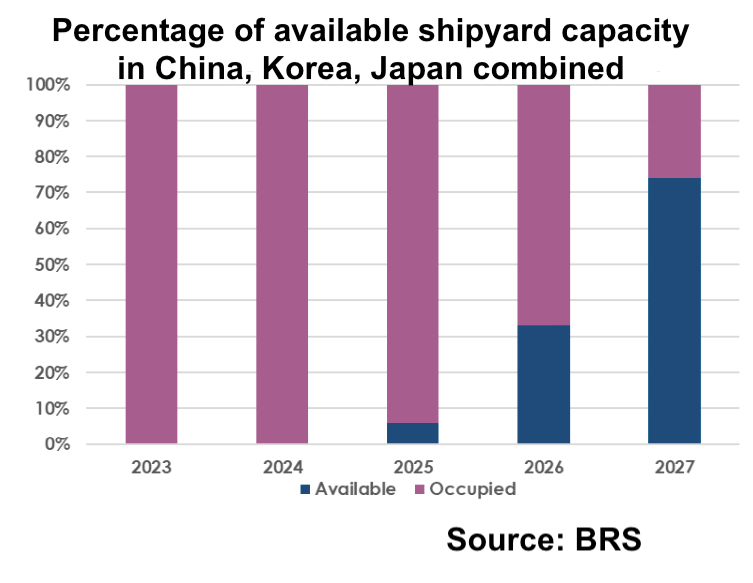
Tanker orders are picking up, but remain unlikely to affect fleet fundamentals until after 2026, according to new analysis from BRS.
Across January to mid-April, firm orders for 61 oil tankers of MR1s and above have been placed for a combined capacity of 5.7m dwt, according to BRS. This is 48 more vessels – equivalent to 3.3m dwt – year-on-year with orders weighted towards MR2s followed by aframaxes, suezmaxes, and LR1s. The month of April is looking like it will be the busiest month for tanker orders since March 2021.
“As the pace of deliveries so far this year is faster than contracting, the orderbook to fleet ratio continues to shrink,” BRS pointed out in a new tanker report. The ratio today stands at 4.1%, the lowest in over three decades.
At the current pace of ordering, annualised contracting is running at 260 units, up by 165% year-on-year, which would take the ratio to 5%.
Combined crude and product tanker fleet growth over the next two years is unlikely to exceed 2% in nominal terms, BRS is forecasting lending support to a host of bullish tanker analysis this year, with many experts suggesting the market is set fair for 2023 and 2024.
Tanker panellists at this week’s this week’s Maritime CEO Forum in Singapore were all confident that this year would be a very solid one for the sector.
“We think it looks good for 2023 and beyond,” said Alan Hatton, the CEO of Foreguard Shipping. “The orderbook remains low, and to order a ship costs top dollar and you have to wait, and we still don’t know what propulsion to choose.”

